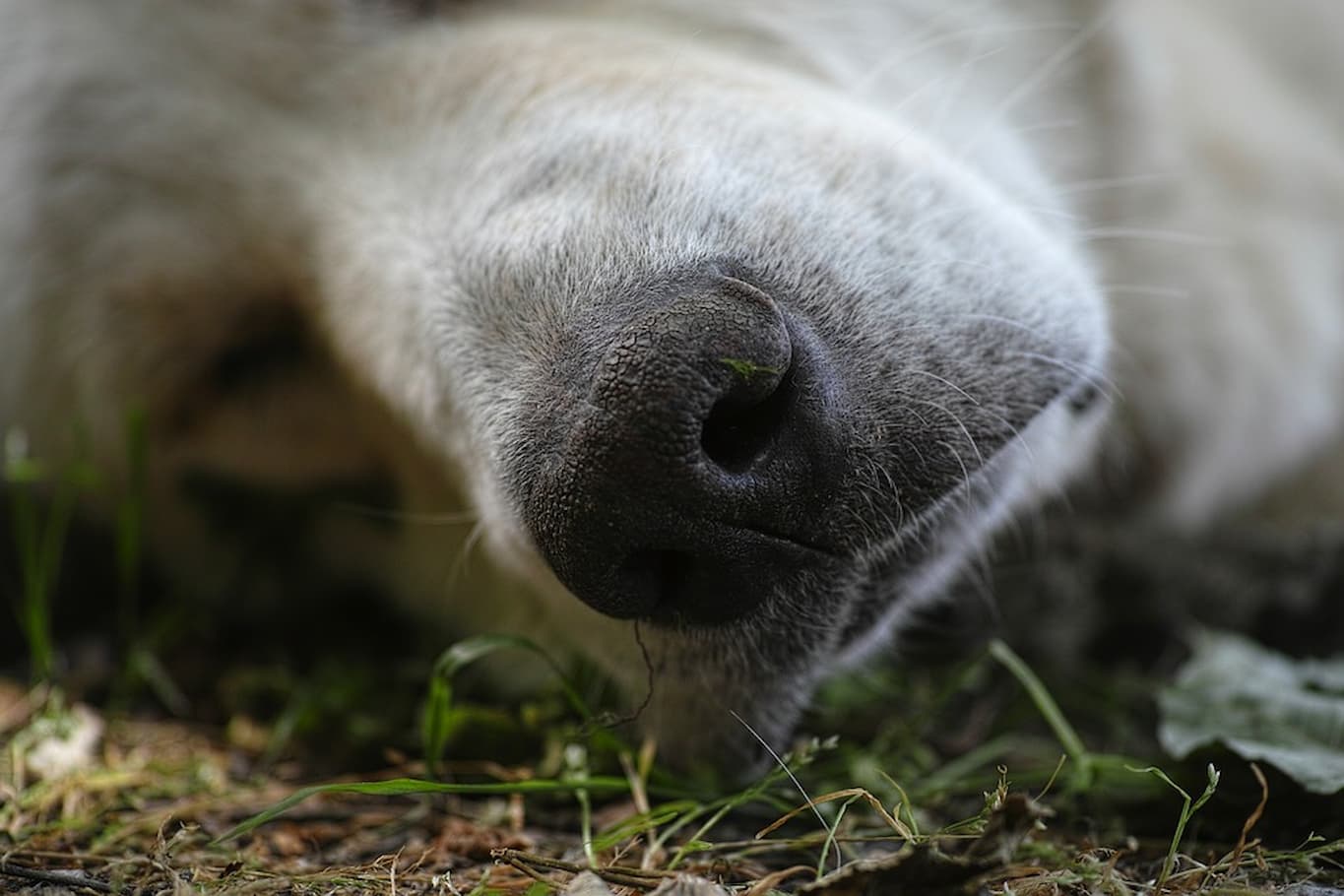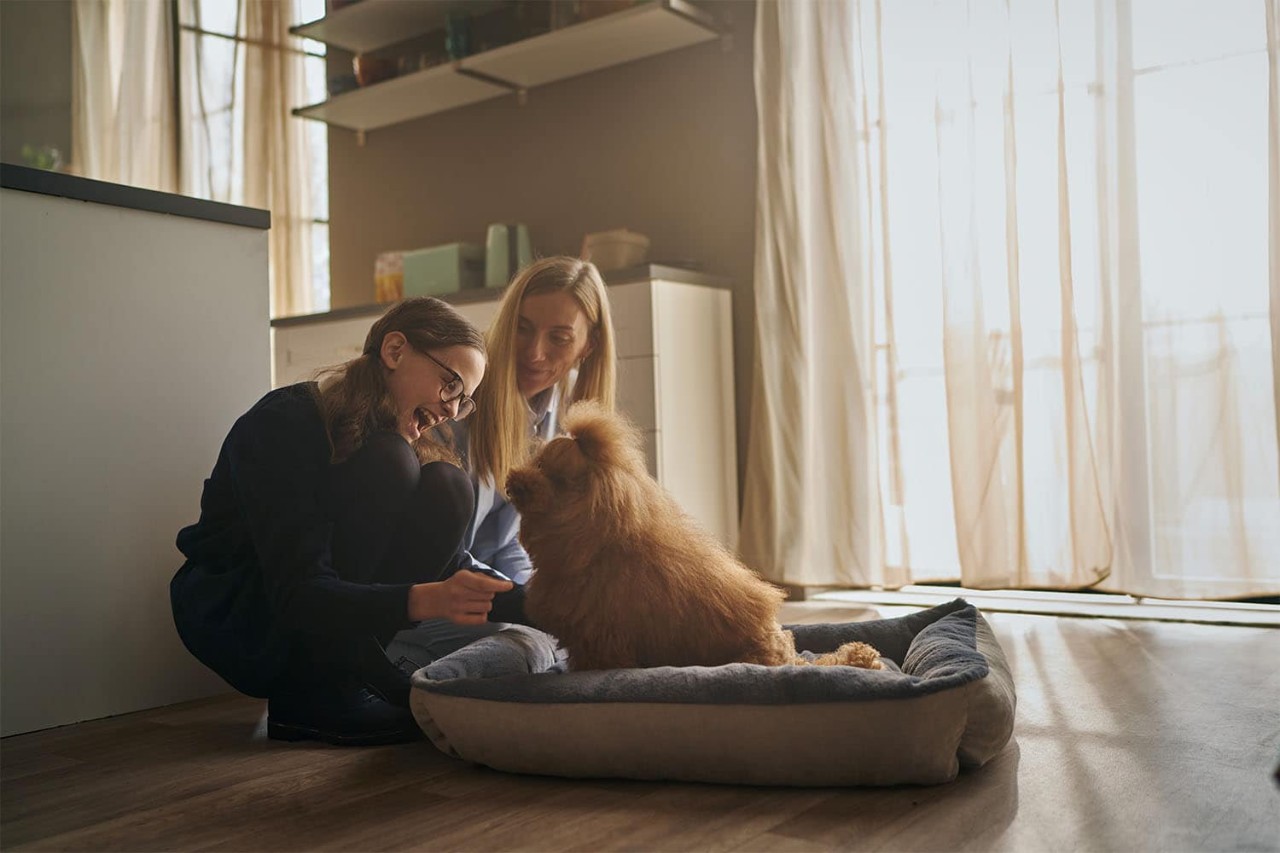Mourning the Sudden Death of Your Pet
by Angela Hickey | 4 min read November 3rd, 2017
Dr. Angela Hickey, our in-house vet, who is a qualified psychotherapist, discusses how to cope with the sudden death of your pet.
The loss of a pet, especially when unexpected or sudden, can be a traumatic event for you and your family.
These deaths can come suddenly and terribly into our lives from road traffic accidents, poisoning, acute illnesses, etc. The first task of mourning, in these circumstances, is to realise and accept that your pet is dead, this can be very difficult. It may feel like it is too much to take in and you may want to deny that it can be true. Or you may feel very angry and want to rush to blame somebody. These two reactions are the fight or flight responses to a traumatic situation. There may also be a ‘freeze’ response with shock and numbness and often a feeling of helplessness. These symptoms take over your body as well as your mind and will take time to process. The more you can experience the reality of what has happened by seeing your pet’s body, speaking to vet staff, assuring yourself that your pet is indeed dead and won’t be coming back, the more you will be able to engage with and work through the grief process.

Final Moments
If your pet is already dead, or is close to death in a vet clinic or Emergency Room, it is ok to insist on some quiet time with them to say your goodbyes. Modern pain relief and sedatives can make your pet comfortable until members of the family have been contacted and have had an opportunity to be involved in some way. You may want to bring your pet’s favourite blanket, or wrap an item of your own clothing around them so it will comfort them in their last minutes.
Try to avoid being left powerless in the situation. Ideally bring a friend or relative who can speak up for what is important to you and your pet at this crucial time, especially if you are dealing with a vet you don’t know. You may have to make the difficult decision to euthanize but don’t be rushed into this. You need as much support and information as possible in making such a final decision. Being there with your pet, having some sense of agency, asking questions and being listened to, will all help a lot in the grieving process. Seeing and handling your pet will help hugely in the task of accepting the reality of the death.
Saying Goodbye
You may want to take your pet’s body home rather than leave them in the vet’s clinic. The vet staff can prepare and clean the body and use incontinence sheets inlaid on whatever bed or blanket into which you want to settle their body. This time with your pet will help embed the reality of their death and give all members of the family, friends, and other pets an opportunity to say their goodbyes. It will help all involved to have this time with your pet so that they can talk about what has happened, question what happened, cry, be angry, express guilt, remember good times, remember their last interaction, or just sit quietly absorbing everything and trying to make sense of this big change in your lives. This will be a time for everyone to make the decision about what will be done with the body, cremation or burial, and what kind of urn they would like to receive the ashes back in if cremation is chosen. Call on a family friend or relation if you feel too overwhelmed to tackle the practical issues at this time. Your vet will arrange the cremation for you and let you know when to collect the ashes.
If it is not practical or suitable to have your pet’s body at home still take time to let what has happened sink in and to give all who have been involved in your pet’s life time to talk about the death and to make decisions. Your vet will keep his body until you are ready for the next stage of letting it go for cremation or burial.
Grieving and Mourning
Arriving home for the first time without your pet may be difficult. Your home may feel empty and strange. As you face the loss of their companionship each day, the emotions of grief will come in waves, and recede. It is important to embrace these feelings rather than resisting them. You may swing between being numbed with shock and disbelief and then feeling deep pain as the reality of the loss hits home. You may feel a deep yearning to have your pet restored to you, heartbreak at their loss, anger, guilt, depression. Letting yourself experience all of this is not easy, especially if people around you do not validate the depth of your loss as they would a human death. Try to seek out those who do understand and share some of what you are going through.
You will also feel the pressure and the need to ‘get on with life.’ The meals, work, school, housework etc. still need your attention and these routines will ‘hold’ you as you move through the early days. Limit any excessive responsibilities and try to take some time to grieve. Avoid making any big decisions at this time. It is important to engage with both the tough feelings when they come and the need to cope and carry on with your daily life; it is a dual process.
In time, we can reach an acceptance of our loss and move on to new aspects of our lives. However the traumatic effects of sudden death may lead to a more prolonged and complicated grief in some cases. Seeking the help of an empathic therapist who understands the importance of the human animal bond and has experience in this area can be of great help.






